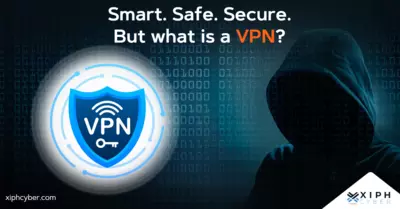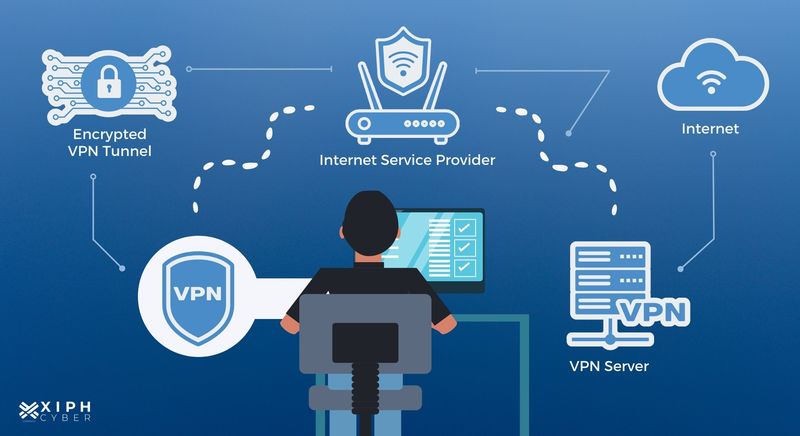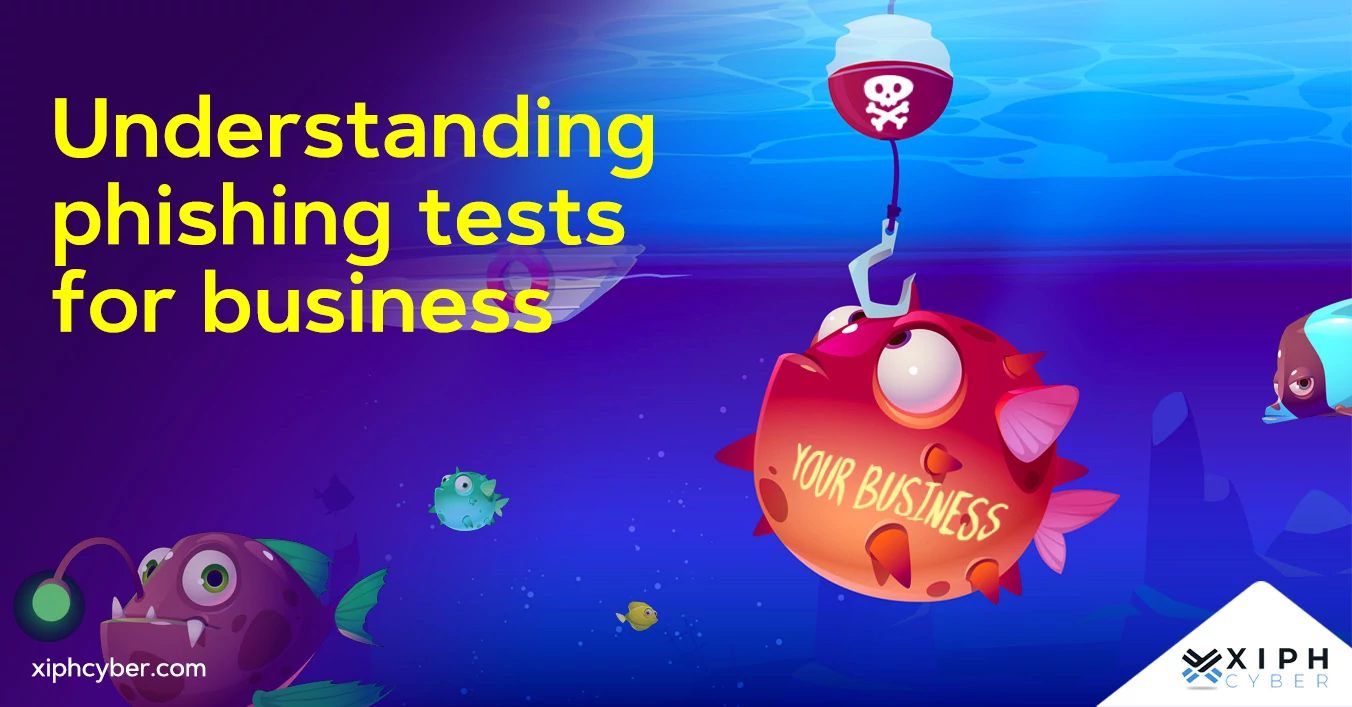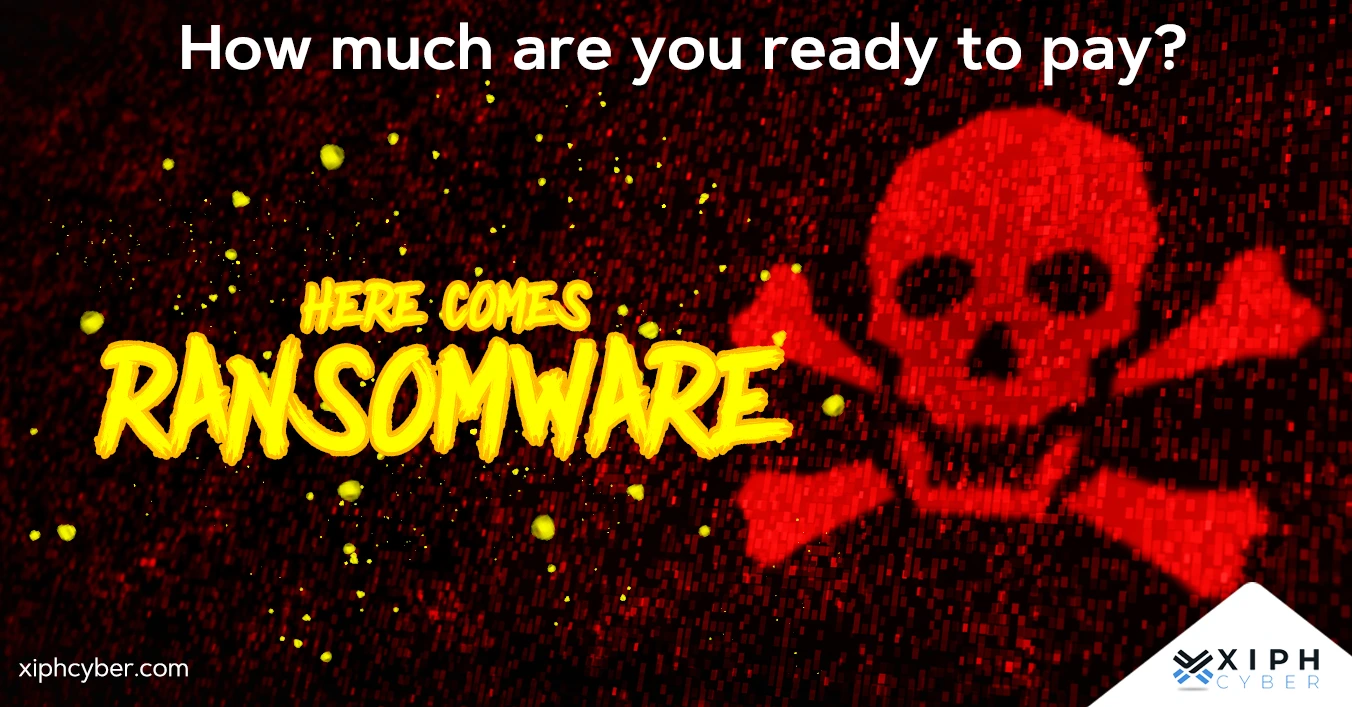Published Mar 18, 2022 by Xiph
Privacy online is now more important than ever. If you don’t yet have a VPN, you could be at risk of data theft and exploitation by hackers and advertisers. What’s a VPN & how does it work? This guide explains it all.

The internet and more specifically Wi-Fi networks are security minefields for data theft and tampering. Hackers and cybercriminals often target public Wi-Fi networks to sniff out any sensitive information to exploit. Meanwhile, snoopers and advertisers also target home networks for privacy vulnerabilities and ad targeting.
If you’re looking to protect your privacy online − a virtual private network (VPN) − is the closest you can get to anonymity online. That’s right, a VPN can do more than help you stream Netflix shows not available in your area.
What’s a VPN?
A VPN establishes a secure and private connection between your devices (i.e. laptop, smartphone, etc.) and the internet. A VPN can encrypt your traffic and data (through a private external server) and disguise your IP (Internet Protocol) address when you use the internet to make it more difficult for third parties and hackers to track your online activity. A VPN connection also helps protect you against cyber attacks by anonymising your information, meaning that even if a third party did get their hands on your information, they wouldn’t be able to decipher it.
How does a VPN work?
A VPN re-routes your internet traffic through a virtual private network, different from the one of your Internet Service Provider (ISP), to secure and encrypt your data. This can include your browser metadata, personal details like banking information and passwords, your internet searches, IP address, and geographical location. In layman’s terms, a VPN provides a private tunnel for your data and communications to prevent hackers, third parties, and snoops like your ISP from tracking your online activity.
Why should you use a VPN?
Using a VPN is by far the best way to hide your online activity and use the internet somewhat anonymously (although keep in mind it’s virtually impossible to remain truly anonymous online). Here are the main benefits of using a VPN:
- Can increase your internet speed: In some cases, a VPN can increase your internet speed by circumventing bandwidth limits imposed by your ISP. It can connect you to a remote server with no bandwidth or download limits.
- Protects against hackers when using Wi-Fi hotspots: It’s not a magical privacy shield, but a VPN can help secure your connection and encrypt your data when using public Wi-Fi.
- Hides your browser and search activity: A VPN can hide your internet browsing and search history, including search terms you’ve looked up, links you’ve clicked on and websites visited.
- Hides your location and IP address: One of the many reasons people use a VPN is to hide their IP address, as this can disclose your physical location including your city, postcode, and country. Your IP address can also reveal your ISP and therefore other private information like your home address and contact number.
- Bypass geo-fencing restrictions on websites and streaming services: A VPN can re-route your traffic and connect you to a secure server somewhere else in the world and help you bypass geo-blocking on certain websites and streaming platforms. A VPN can help you switch between servers in a location of your choosing.
- Hides your online activity while torrenting: A VPN can hide your IP address and personal details while torrenting.

How does a VPN hide your IP address and location?
A VPN hides your IP address in mainly two ways; by encrypting your location settings and data, and by re-routing your traffic through to a private VPN server, instead of the servers owned by your ISP. Your IP address is a numerical label that identifies your device on the internet or a local network. It’s often likened to a digital fingerprint, in that no two IP addresses are the same and that your IP address leaves digital ‘prints’ when you visit websites and applications. Third parties and advertisers can then pick up that information to serve you personalisd content.
Does a VPN protect you against malware?
A VPN can protect your privacy and information, but it’s not anti-virus software and therefore doesn’t offer protection against malware and other cyber threats. A VPN will not stop malware infection if you click on a malicious link, open a phishing email, or accidentally download a virus. Be sure to use a dedicated anti-virus software and other security tools to protect yourself and your business from malware.
Do you need a VPN for your home?
Most home Wi-Fi networks are considered safe, but using a VPN at home gives you another layer of protection by hiding your IP address, browsing activity, and personal data to prevent advertisers and other snoops from tracking your online activity. Most individuals use a VPN to encode their online data and prevent internet service providers and applications, including Facebook and Google, from collecting and selling private information to advertisers. Many people also use a VPN to hide their IP address and access geo-blocked sites, including streaming services like Netflix or Amazon Prime.
Do businesses use a VPN?
Businesses typically use a VPN to give remote employees secure access to internal networks and applications, including classified software, private accounts, and secured files stored on the business server. Companies, universities, and organisations also use VPNs to create a single shared network between multiple business locations and groups. You can use a VPN on any internet-connected device including laptops, smartphones, and tablets.
Is a VPN legal?
Using a VPN is 100% legal in Australia and most countries around the world, except for a few with heavy censorship and online surveillance like China and North Korea. As mentioned, VPNs are used widely by individuals, and public and private organisations alike to secure their online activity. Australia also saw an increase in VPN usage since the introduction of the Telecommunications (Interception and Access) Amendment (Data Retention) Act 2015, a data-retention law that requires telco service providers to retain customers’ telecommunications data (including IP addresses, billing information, and other data) stored for up to two years; all accessible by law-enforcement agencies without a warrant. Just keep in mind that any illegal activity committed online using a VPN is still an illegal activity.
A final word
The type of VPN you need will ultimately depend on your online habits and activity, including how often you use public Wi-Fi networks, if you conduct business/financial transactions online, or access streaming content from overseas. For advice on the best VPN protocols to use, contact us via email for more information: enquiries@xiphcyber.com.
Posted in: Security


